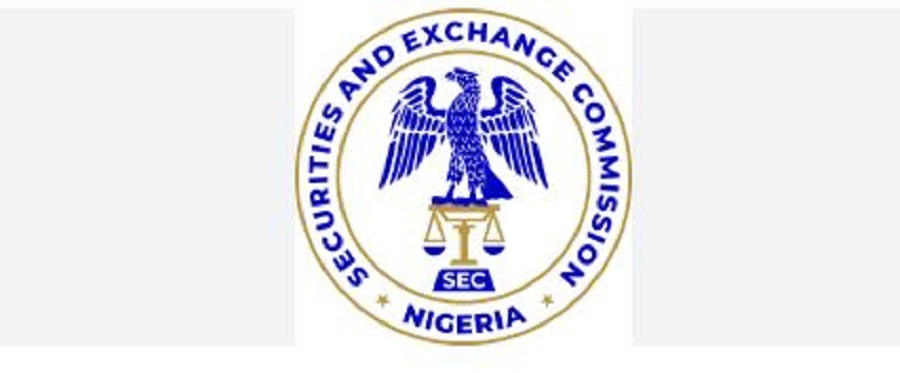E-Financial
eNNovators: Stakeholders Frown at Low mPOS Deployment

Participants at eNNovators Breakfast Series (EBS) themed ‘making mPOS a veritable last Mile Banking in Nigeria’ have expressed disappointment with the snail pace at which providers are deploying mobile Point of Sale (mPOS) solutions in the country.
Though NIBSS has certified 14 mPOS providers, but the participants describe the deployment as abysmally low with about 2,000 terminals in circulation.
Only by exchange of innovative ideas and exposition of business opportunities that banks, ISOs and merchants can understand that mPOS is a veritable tool for last mile banking in Nigeria.
Therefore, EBS brought together regulators, mPOS players, banks and merchants to accelerate deployment and consumer checkout experience.
EBS is a quarterly breakfast event. It is specially packaged for the Dreamers, Drivers and Doers (3Ds) of technology business in financial services industry across Africa.
EBS offers opportunities to network learn and plan strategically. Quarterly, leading industry Thought Leaders meet in an intimate and relaxed environment to create new relationships and promote their organizations.
mPOS
Participants at the Forum, however, acknowledged the rapid growth of the mPOS solutions worldwide is making a profound impact on the wider industry with banks, FinTechs, vendors and non-bank players (NBPs) fighting for a piece of the action.
Although mPOS only emerged as a distinct category of payments about five years ago, but the global mPOS industry has experienced exponential growth.
A May 2013 report from Timetric found that globally, the number of mPOS terminals has grown from 4.5 million in 2011 to 9.5 million by 2012, representing a compound annual growth rate (CAGR) of 111%. Over the forecast period of 2011 to 2017, mPOS terminal adoption is expected to increase from 4.5 million to a staggering 38 million by 2017 with a forecast by CAGR of 42.7%, largely driven by growth in the retail sector, increased online trade and more smartphones and card users.
The report also forecasts that by 2017, the adoption of mPOS terminals over standard PoS terminals would be 46%, as opposed to the 17% seen in 2012.
But despite the global growth in mPOS deployment, it seems that banks and ISOs in Nigeria are less enthusiastic about its adoption.
Therefore, EBS brought together regulators, mPOS players, banks and merchants to accelerate deployment and consumer checkout experience.
According to Mr. Sola Fanawopo, event director at EBS, “For the mPOS scheme to succeed, it must address acceptance and payments behavior in the country as well as drive acceptance into new merchant segments in the market. The scheme must also drive acceptance into new merchant categories while extending the acceptance functionality to recurring payments such as ‘Cash-in’ and ‘Cash-out’”
E-Financial
FIRS Decries Cross-border Tax Crimes

Dr Zacch Adedeji, Chairman of the Federal Inland Revenue Service (FIRS), has stated that cross-border tax crimes had undermined effort of countries to raise revenue for development.

He added that cross-border tax crimes distorted fair competition because compliant companies pay a higher cost for business and appear less profitable.
He also challenged global leaders to tackle the rising cross-border crimes that have disrupted revenue mobilisation and economic growth. Adedeji threw the challenge while delivering a keynote address at the 42nd Cambridge International Symposium on Economic Crimes (CIDOEC) held at the University of Cambridge, United Kingdom.
The symposium has, for over four decades, been a crucible of ideas, a forge for strategies, and a platform where countries chart a collective course against the impact and threat economic crimes pose to countries and institutions.
The global meeting was attended by about 1,000 participants from more than 100 countries, including legislators, policy makers, law enforcement agencies, security and intelligence personnel, regulators, governance and compliance officers, and academics.
Special Adviser on Media to the FIRS boss, Dare Adekanmbi, in a statement, said Adedeji was represented by the Coordinating Director of Proceeds of Crime Management and Illicit Financial Flows and immediate past chairman of the Independent Corrupt Practices and Other Related Offences Commission (ICPC), Professor Bolaji Owasanoye.
“This year’s theme ‘Cross-Border Crimes’ speaks directly to one of the most complex and corrosive challenges of our interconnected world. “In a global economy where capital can move faster than law enforcement, and where digital and legal arbitrage often outpace regulation, the fight against crossborder economic crime is, by necessity, both local and global, both urgent and pressing.
“Modern day cross border crimes remind us that borders and boundaries have become virtual and distance irrelevant to the perpetration of crime and the negative impact on victims,” said Adedeji, who is also the Special Adviser on Revenue to President Bola Ahmed Tinubu.
On corporate or natural citizens who evade, avoid, fraudulently manipulate tax obligations by exploiting the intricacies of international trade or international finance, the FIRS boss said they have become implicated in cross border crimes.
He said: “When corporate or natural persons earn income in one country but hide same in another country, when they deceive, conceal or falsify records, they undermine the integrity and fiscal aspirations of the two countries they are manipulating. “When they hide income and assets in secrecy in some jurisdictions to avoid home-country taxes, they are hurting the fiscal target of home country.”
E-Financial
NGX Suspends Three Firms over 2024 Financial Results

Nigerian Exchange (NGX) has suspended three insurance companies on the exchange for failure to release financial results for the 2024 fiscal year.

The affected underwriting firms are Regency Alliance Insurance Plc, International Energy Insurance Plc, and Universal Insurance Plc.
As a result of the embargo, shareholders and other investors will not be able to trade their stocks on the local stock market, according to a notice signed by Obioma Oge for the Head of Issuer Regulation Department of the NGX.
In the statement, it was disclosed that the effective date for the suspension of the three organisations was Monday, September 1, 2025.
It was in line with Rule 3.1, Rules for Filing of Accounts and Treatment of Default Filing, (Default Filing Rules), which provides that if an Issuer fails to file the relevant accounts by the expiration of the cure period, the exchange will: a) send to the issuer a second filing deficiency notification within two business days after the end of the cure period; b) suspend trading in the issuer’s securities; and c) notify the Securities and Exchange Commission (SEC) and the market within 24 hours of the suspension.
However, the embargo may be lifted if the trio released their outstanding financial statements for “the year ended December 31, 2024.”
E-Financial
SEC Launches Redesigned Website to Boost Transparency, Investor Safety

Securities and Exchange Commission (SEC) Nigeria has officially launched its newly redesigned website, marking a significant step toward enhancing digital engagement, regulatory transparency, and investor protection.

The regulator, in a statement on Monday, said the upgrade introduces a modern design, enhanced functionality, and a streamlined user experience aimed at investors, market operators, and the general public.
According to the SEC, the new platform features improved navigation, consolidated resources such as regulatory guidelines and publications, and a mobile-friendly design.
“This comprehensive upgrade introduces a modern design, enhanced functionality, and a streamlined user experience,” SEC said.
“The restructured platform ensures critical information is better organized and more accessible for all stakeholders, including investors, market participants, and the general public.
“Key enhancements include an intuitive menu and site structure for finding information quickly.
“Consolidated Resources: Key documents, regulatory guidelines, and publications are now easier to locate. A responsive design optimized for desktop and mobile devices.
“The initiative underscores the Commission’s ongoing commitment to transparency, operational efficiency, and improved stakeholder engagement.”
According to Emomotimi Agama, director-general (DG) of SEC, the website redesign reflects “our dedication to continuous improvement in service delivery and communication”.
“This digital advancement is a significant step in building a more transparent and accessible Commission, enhancing our engagement with the capital market and the investing public,” Agama said.
Also speaking, Samiya Usman, executive commissioner for corporate services at SEC, said the focus went beyond aesthetics.
“By simplifying access and logically organizing content, we have created a powerful platform that supports our mission to develop and regulate a fair, efficient, and transparent capital market,” the commissioner said.
The SEC urged stakeholders to explore the website and use its features to access regulatory updates, news, and services.

 Telecom2 days ago
Telecom2 days agoMTN Nigeria Empowers over 3,000 Customers with ₦579m in Mega Billion Promo

 News2 days ago
News2 days agoSuri’s Memoir Sparks Visionary Dialogue with Zimbabwean Ministers on Africa’s Future

 E-Financial2 days ago
E-Financial2 days agoUnion Bank of Nigeria Completes Merger with Titan Trust Bank

 E-Financial2 days ago
E-Financial2 days agoAMMBAN Faults CBN’s 60-day Deadline on PoS Geo-Tagging

 News2 days ago
News2 days agoAdlantique Named Nigeria’s Best in Digital Marketing, Content Creativity @ 2025 Beacon of ICT Awards

 General News2 days ago
General News2 days agoAirtel Africa Foundation Presents Nigerian Students with Tech Scholarships

 General News2 days ago
General News2 days agoCAC Postpones New Fee Implementation

 Telecom2 days ago
Telecom2 days agoSwitch Solutions to Lead Cybersecurity Innovation @GITEX Nigeria 2025















